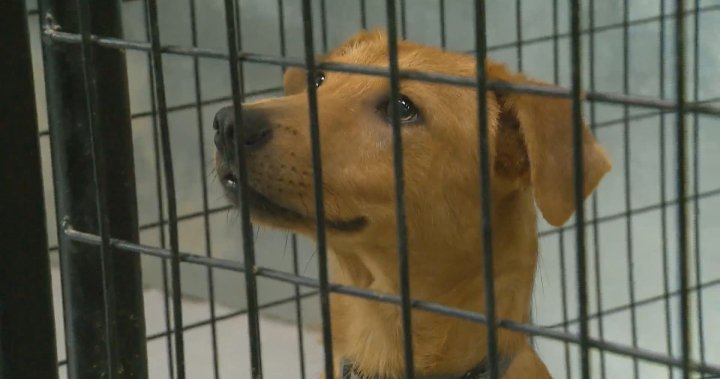The recent outbreak at BARCS Rescue has cast a somber shadow over Calgary’s animal rescue community. Walking through their facility yesterday, I couldn’t help but notice the unusually quiet kennels where energetic barks once echoed. Sixteen dogs lost in a matter of weeks – eight to distemper and eight to parvovirus – devastating numbers that underscore a preventable tragedy.
“We’re heartbroken,” shared Melissa Foley, BARCS Rescue’s founder, her voice breaking slightly during our interview. “These were healthy, adoptable dogs with bright futures ahead of them. Now they’re gone because of diseases that vaccines could have prevented.”
The outbreak began in early April when several dogs started showing symptoms. Despite immediate veterinary intervention, the highly contagious nature of both diseases proved overwhelming for the rescue operation.
Calgary’s veterinary community has responded with concern. Dr. Samantha Wilson from Bow Valley Veterinary Clinic explained to me that these outbreaks represent a disturbing trend. “We’re seeing more preventable disease cases across the city. The decrease in routine vaccinations post-pandemic has created vulnerable populations of animals.”
The Alberta SPCA confirmed similar cases have appeared in other facilities across the province. Their records indicate a 27% increase in preventable disease outbreaks in animal shelters compared to pre-pandemic levels.
Distemper and parvovirus are particularly insidious threats to canine health. Distemper attacks multiple body systems, causing respiratory issues, gastrointestinal problems, and potentially fatal neurological complications. Parvovirus primarily targets the digestive system, leading to severe dehydration and often death, especially in puppies and unvaccinated dogs.
“The heartbreaking reality is that both diseases are almost entirely preventable with proper vaccination protocols,” Dr. Wilson emphasized during our conversation at her clinic yesterday. “A simple series of shots costing under $100 can prevent thousands in treatment costs and immeasurable suffering.”
BARCS Rescue estimates they’ve spent over $30,000 trying to save the affected dogs, depleting their emergency medical fund. The financial impact compounds the emotional toll on staff and volunteers.
Emma Thompson, a volunteer who’s been with BARCS for three years, shared her perspective. “I bottle-fed one of those puppies from when he was two weeks old. Watching him suffer from parvo despite our best efforts was devastating. I still can’t believe he’s gone.”
The ripple effects extend beyond the rescue itself. BARCS has temporarily halted intake operations while they disinfect their facilities, creating additional strain on other local rescues and the city pound. Calgary Animal Services reports they’re operating at 93% capacity with limited ability to take in additional animals.
The timing couldn’t be worse. Spring typically brings “puppy season” – when unplanned litters flood local shelters. This year, with BARCS and several other rescues limiting intake due to disease concerns, the system faces potential overload.
“We’re anticipating a crisis situation by June if vaccination rates don’t improve and these outbreaks continue,” warned James McKnight from Calgary Animal Services during yesterday’s city council meeting on animal welfare.
The current situation highlights a troubling post-pandemic trend I’ve been tracking in my reporting. Veterinary clinics across Calgary report that routine vaccination appointments dropped significantly during COVID-19 restrictions and haven’t fully rebounded.
Dr. Wilson’s clinic data shows approximately 22% fewer vaccination appointments compared to 2019 numbers. “People got out of the habit, or their financial situations changed. Whatever the reason, we’re seeing the consequences now with these preventable outbreaks.”
Community response has been swift. Local pet supply stores have organized vaccination clinics, and several veterinary practices are offering discounted preventative care. The Calgary Humane Society has launched an emergency education campaign on social media and through community partners.
“This isn’t just a rescue problem – it’s a community health issue,” explained Dr. Lisa Reynolds, chief veterinarian at the Calgary Humane Society. “Unvaccinated pets in homes are equally at risk, especially as these viruses can persist in the environment for months.”
For pet owners, the message is clear: check your pet’s vaccination status immediately. Core vaccines for dogs include protection against parvovirus, distemper, adenovirus, and rabies. Most require initial series and then boosters every one to three years.
BARCS Rescue has launched a fundraising campaign to recoup their losses and implement even stricter intake protocols. They’re also working with other rescues to develop standardized vaccination requirements for transferred animals.
“We won’t let these losses be in vain,” Foley told me as we walked past the kennels being sanitized. “If sharing our story prevents even one family from experiencing what we’ve gone through, that matters.”
As Calgary’s summer approaches, bringing increased outdoor activity for pets, veterinarians stress the importance of prevention. The viruses spread through direct contact between dogs and through contaminated environments – meaning dog parks, walking trails, and other public spaces can be transmission points.
The current situation serves as a stark reminder that despite our advanced veterinary care, basic preventative measures remain essential. For the rescue community, it’s a painful lesson learned at tremendous cost. For pet owners, it’s a call to action that could save their companions’ lives.







